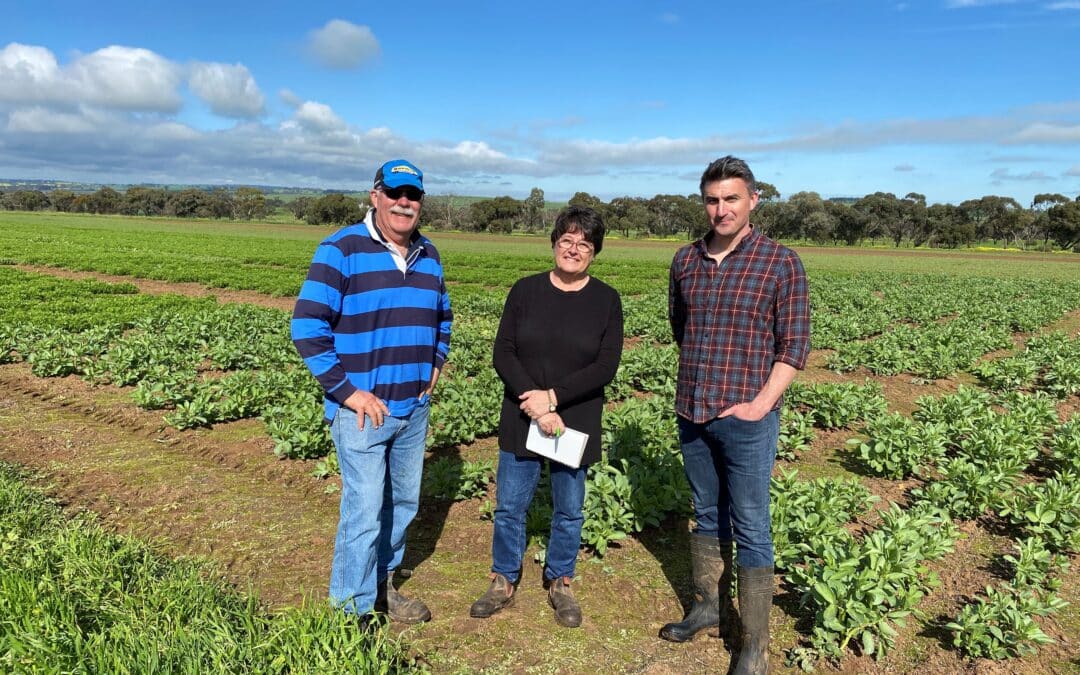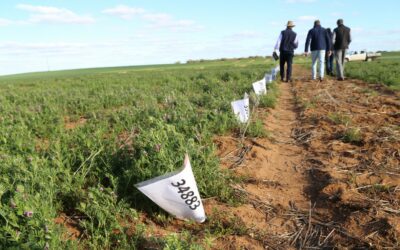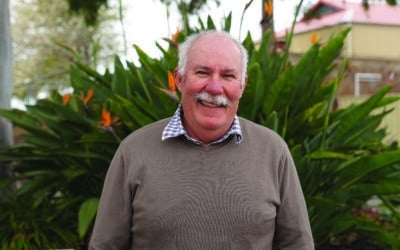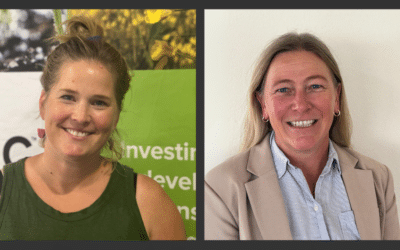A record number of applications for funding were received this year by the South Australian Grain Industry Trust (SAGIT), with 21 new grains research projects successfully securing a portion of the trust’s $2.6 million investment in 2024.
A wide range of projects have been funded across many disciplines including plant breeding, crop protection, market development such as the development of novel food products from pulses and oats, capacity development and agronomy.
SAGIT chair Dr Andrew Barr said the challenge in reviewing the 64 applications was determining how to best allocate limited resources, but collaboration with co-funding partners helped.
Of the 21 successful projects, three will receive co-investment funds from the Grains Research and Development Corporation (GRDC), one will receive co-investment funds from the South Australian Drought Resilience Adoption and Innovation Hub and another will receive co-investment funds from the Sheep Industry Fund.
“This co-investment model enables SAGIT to broaden its research efforts and enhance the knowledge we deliver on-farm,” he said.
“It is important that research organisations continue to work constructively together to leverage funding which supports a wider range of projects than we would be able to fund on our own.
“SAGIT is pleased to be able to work with GRDC, the South Australian Drought Hub and the Sheep Industry Fund to offer co-funding for some of these projects.
“There were a lot of projects the trustees thought had merit this year, but we weren’t able to fund them all.”
SAGIT also received legacy funding this year from the South Australian No-Till Farming Association, which is in the process of being dissolved, to be used for field crop research to benefit SA growers.
“In light of this, the trustees chose a project that would have matched with SANTFA’s goals. That project will see researchers from the South Australian Research and Development Institute (SARDI) design a multi-purpose no-till seeder for plot research,” Dr Barr said.
Dr Barr said one particularly novel project with SARDI and NuSeed aims to test genetically modified canola lines with high levels of omega 3 fatty acids on the Eyre Peninsula.
“These lines have the potential to be a sustainable raw material for aquaculture feeds, thus diversifying the market for canola,” he said.
SAGIT is currently funded by a voluntary grower levy of 30 cents per harvested tonne.
The successful projects are:
| Organisation | Project title |
|---|---|
| AgCommunicators | Lead Agriculture Teacher (co-funded with Sheep Industry Fund) |
| Ag Excellence Alliance | Ag Excellence Forum 2024 |
| Agronomy Solutions | Unravelling crop yield response to application of organic amendments on different soil types |
| AgXtra | Wheat powdery mildew management strategies |
| Central Ag Solutions | Appropriate fertiliser strategies for on-row lentil sowing in saline soils (co-funded with GRDC) |
| Global Grain Genetics | Lentils for sustainable rotations on low-rainfall highly alkaline calcareous soils |
| Hart Field-Site Group | Regional Internship in Applied Grains Research (co-funded with SA Drought Hub) |
| Next Level Agronomy | Optimising lentil yields through rotation in transient salinity soils |
| SARDI | Optimisation of Omega 3 canola for the Eyre Peninsula |
| SARDI | Specialised research seeder to advance management of soil biological constraints (funded through SANTFA legacy funding) |
| SARDI | Drought preparedness using barley architecture and phenology for biomass production |
| SARDI | Grains pathology internship |
| SARDI | Eyre Peninsula Farming Systems Summary 2024-2026 |
| SARDI | Convenient, delicious and nutritious value-added foods from Australian pulses |
| SARDI | Novel healthy food products from oats – fermented, spoonable snacks |
| Trengove Consulting | The impact of annual ryegrass seed size on harvest weed seed control mill efficacy |
| Trengove Consulting | Making the most of phosphorus (P) fertiliser inputs: Managing spatial variability and long-term strategies (co-funded with GRDC) |
| University of Adelaide | Multi-scale monitoring of pests and beneficial insects in canola cropping |
| University of Adelaide | Increasing pulse yields: focus paddocks to identify & manage soilborne constraints |
| University of Adelaide | An improved and rapid test to inform sodic soil management |
| Upper North Farming Systems | Strategies for mitigating frost damage in the Upper North region (co-funded with GRDC) |
ENDS
For interviews, please contact Bridget Penna, AgCommunicators, 0429 676 413




